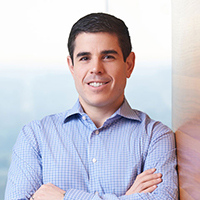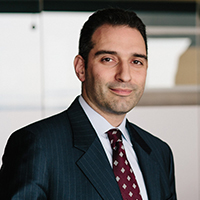What Keeps Compliance Officers up at Night?
Two members of the Private Equity Regulatory Task Force steering committee discuss the compliance and regulatory issues impacting PE firms.

ACG formed its Private Equity Regulatory Task Force four years ago to bring together CFOs, CCOs and in-house legal counsel of middle-market private equity firms. PERT’s goal is to share best practices for navigating the current regulatory environment, as well as to engage with federal decision-makers as they craft policy.
Middle Market Growth recently spoke with two members of the PERT steering committee, Randy Guttman, CFO and general partner of JMI Equity; and Joshua Cherry-Seto, CFO and CCO of Blue Wolf Capital Partners LLC, to hear their take on the compliance issues facing middle-market PE firms today and the value they see in PERT.
Q. What regulatory and compliance issues are impacting middle-market private equity firms?
Randy Guttman: A lot of middle-market private equity and growth equity firms don’t have a dedicated chief compliance officer. In some cases, it’s the chief financial officer who is also acting as the CCO, so it becomes a resource question as reporting and compliance demands increase.
Limited partner reporting requests are growing, and some of the quarterly requests and capital call and distribution requests can be difficult for a smaller firm that doesn’t have the same back-office resources as a larger firm. Breaking out partnership expenses based on varying LP requests can also be challenging. It requires breaking out certain types of expenses that a private equity firm wouldn’t typically break out on its financial statements.
Another area impacting PE firms is some of the SEC filings, particularly Form ADV and Form PF. You have to read between the lines and ask lawyers to interpret what the forms are asking. And it’s hard to answer because the forms often are not applicable to middle-market firms—they were designed with mutual funds or hedge funds in mind.


Joshua Cherry-Seto: There are also important issues around co-investment, which over the last five or 10 years has become a normal part of doing business for commingled funds. One important issue is the allocation of co-investment opportunities and how GPs offer them to their limited partners. There’s also the question of allocation of expense. If there’s a situation where there are dead deal expenses, it creates an interesting question from a regulatory standpoint in terms of who should pay for the expenses.
How has technology impacted the compliance demands for middle-market PE firms?
RG: Cybersecurity is one area. It has become less of an IT issue and more of a compliance issue. Institutional limited partners are increasingly interested in speaking with the back-office employees involved with cybersecurity to learn more about the firm’s approach.
JCS: Marketing and advertising rules for GPs remain very outdated as technology evolves. They were designed in a pre-internet era and fit poorly into today’s world. For GPs that want to use websites or online means to reach potential partners—companies looking to sell, or investment banks we might work with—the existing rules perceive this as an advertisement to retail investors, which is prohibited. I think under SEC Chairman Jay Clayton there’s a constructive view on working together and improving the dialogue to bring more clarity to these regulations.
Q. What role does PERT play in helping PE firms navigate the regulatory and compliance environment?
RG: A CFO, COO or CCO often can feel like they’re on an island within their own firm. It can be a challenge to talk with colleagues in your firm about these issues because there aren’t many who understand the point of view of what you do. PERT provides a network of peers who are engaged in these issues and available to exchange ideas. The group also gives its members the opportunity to meet directly with SEC staffers and congressional representatives to talk about the issues we’re facing and to hear policymakers’ perspectives.
JCS: In the past, CFOs and others in the middle office could focus on managing the books, cash management, and other core accounting functions. In today’s heightened regulatory environment, one way to avoid having to add multiple people to our back-office staff is to talk with other middle-market GPs about best practices and new reporting demands. That’s a role that PERT serves.
Another is giving us a voice outward. If there’s an issue related to an LP request, for example, one firm has a single voice. But if 60 firms have come together and talked about the topic, it gives the response to the LP more weight. PERT also allows us to have a united front in Washington, D.C., to tell the story of Main Street private equity and the role of private capital in job creation.
Get Involved: To learn more about PERT and how to become a member, visit acgpert.org or contact ACG VP and Senior Counsel, Public Policy, Maria Wolvin, at mwolvin@acg.org.
This article originally appeared in the November/December 2018 issue of Middle Market Growth. Find it in the MMG archive.


